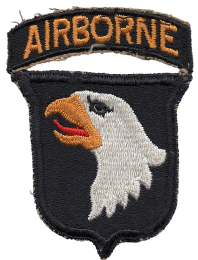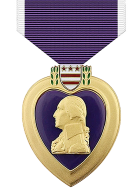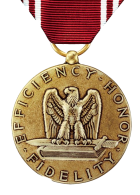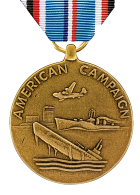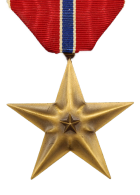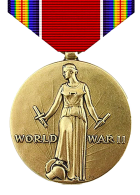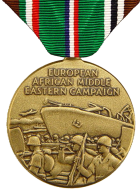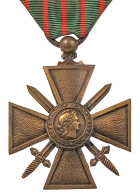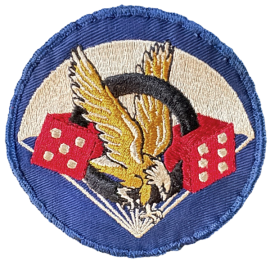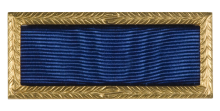I was born in Larksville, PA, a small town in Wilkes-Barre-Scranton area where coal mining was the primary occupation. I was the oldest of seven boys. When I was 15 years old, I joined the CCCs and was sent to Chambersburg, PA where we worked to build roads and a lake. This site today, is a park which is open to the public. I worked in the mines for a very short time after leaving the CCCs. My father then proposed we move to Elizabeth, New Jersey where I worked for Phelps Dodge Copper Products.
I wanted to enlist in the Merchant Marines, but my father would not sign for me to go as it was too dangerous. Finally, at age 18, I was drafted but turned down several times because of sugar in my urine. Eventually, I convinced the recruiting officer that I wanted to serve my country and on December 30, 1943 I was sent to Camp Croft in South Carolina where I did my basic training. One day, someone came running into the barracks saying they were looking for volunteers for the paratroopers. Being one always looking for excitement, I decided this was for me.
I was then sent to Fort Benning, North Carolina (I did not train at Currahee) for my parachute training. I was then sent to England to await assignment to an outfit. Finally in November of 1944 I was sent to Mourmelon, France where I was assigned to Easy Company, 506th PIR, 101st Airborne Division who were in need of replacements. Shortly after Thanksgiving the group was told to "Get on the trucks." We had no idea where we were going. We joined up with the rest of the Company outside Bastogne, near Foy. The Germans were located in the woods across a road from where we were situated. We were ill prepared to fight in such cold weather, not having the proper clothing and we had little in the way of ammunition, but we did the best we could with what we did have.
On arrival we saw many soldiers leaving the area. They were a group of greenies who were fleeing the area commenting that the Germans had some outfits surrounded. Our comments were "Poor bastards." We were trained to fight behind the enemy lines which meant we were always surrounded. Another comment from our guys was that "We are the reception committee." We took whatever ammunition and guns these men had since we didn't have time to get most of our prior to leaving Mourmelon. To say that we weren't scared would be an understatement. We were all on edge, but ready to do whatever had to be done.
The weather was considered to be the worst the area had in over 100 years It set records. Temperatures were 20 to 30 degrees below zero F. In order to keep our feet from freezing, which many did despite our attempts, we would wrap them in burlap bags or anything we could find handy. It was a must to change our socks often to allow them to dry. We found some German casualties, but all we could do was to stack them up until the ground thawed and they could be given a proper burial.
Major Winters, who was a captain at this point, was our company commander and a very good one. We heard stories of how US prisoners were slaughtered by the Germans. After hearing this we were not above killing the Germans whenever we got the chance. I always had a good relationship with Winters and did what I was told because I knew he was my superior and had more information and experience than I.
While in Bastogne and Foy we were running very low on ammunition and other supplies. The weather was overcast with snow. Although this was a trying time, our spirits were high. My Sergeant, Walter (Blackjack) Hendrix and I would harmonize Paper Doll singing as loud as we could to let the Germans know that we were not intimidated by them. Fighting was heavy at times and we were shelled many times. It was here also, that I met a fellow by the name of Frank Mellett. We became close friends. He was from Brooklyn, New York and was an avid Dodger fan. As we moved into Foy, Frank was hit by a sniper as he peered into the window of a farm house.
At one point the German soldiers tried to sneak into the pine grove where we were dug in, wearing white sheets. They stood out like a sore thumb making it possible for us to fire on them. They suffered heavy casualties. While chasing the Germans through the woods and the fields, I came upon some dead German soldiers. I briefly stopped by one who caught my eye. He appeared to be about 14 years old. I couldn’t get over the fact that such young children and even some old men, 40-50 years olds, were involved in this battle.
I truly believe we survived during this time only because we had the attitude that our time was up at any moment and we just lived from moment to moment. Our thought was mainly on how to keep our fellow men alive without regard for our own lives. This is evidenced by Bill Guarnere’s heroic action to save the life of Joe Toye when he lost his leg. Bill lost his leg saving Joe. Another incident while we were dug in, in the pine grove, one of our guys was hit by shrapnel losing his arm. When the medics picked him up, he very calmly asked if they would get his watch from his arm. His Dad had given it to him and he didn’t want to lose it.
>From this point we moved on into Alsace region of France where we lost quite a few more men. From there we were sent back to Mourmelon for a brief respite. After this we marched back into Germany, crossing the Rhine River and eventually going into Buchloe in the foothills of the Alps near Landsberg. It was here that we came upon a concentration camp. The sights were unbelievable and the stench was nauseating. This was a sight I was not prepared to see and hope and pray never to see again. The general feeling of the men at this point was one of disgust that one human being could do something like this to another. We were all very upset over these conditions. It was like a bad dream from which we thought we would wake. Those who today say there never was a holocaust had better not meet up with me.
Although there were incidences of friendly fire killing our own men, I was fortunate enough not to have seen it.
We eventually arrived at Berchtesgaden. It was here that I and a few others were sent out to get transportation. We came upon Hitler’s bus, car and a few other vehicles, but they were all no operational. There was a firehouse in town. We took one of the trucks and drove it back making all the noise we could. We also came across a cellar full of cognac which we agreed not to tell anyone about. Someone else either discovered it or was told about it. When we returned, it was all gone.
There were rumors that Hitler had commit suicide, but we were happy if this indeed was the case. However, many of us felt that he did not do this and that it was the body of someone else that they found. There was talk that from here we were going to be sent to the Pacific, but before that happened, the Japanese surrendered. We were then offered the opportunity to reenlist and be sent back to the States or to stay on. I elected to reenlist and was then sent back to the States where I became a member of the 82nd Airborne and was stationed at Fort Benning until my final discharge date.
After leaving the Army, I met my future wife. I held many temporary jobs finally settling down in Elizabeth, New Jersey. There I found a permanent job with the M&M Candy Company where I worked for the next 33 years. I am now retired and living a life of ease along the North Carolina coast
My moral in life is to pray that someday this world will find true peace and that all men will stop fighting. War is hell! I pray and feel for all the young men today who are involved in the Iraq situation. War has turned me completely against the use of guns. Although they do have a purpose in hunting, etc. it saddens me greatly that they are also used in so many wrongful ways.
Hank Zimmerman

